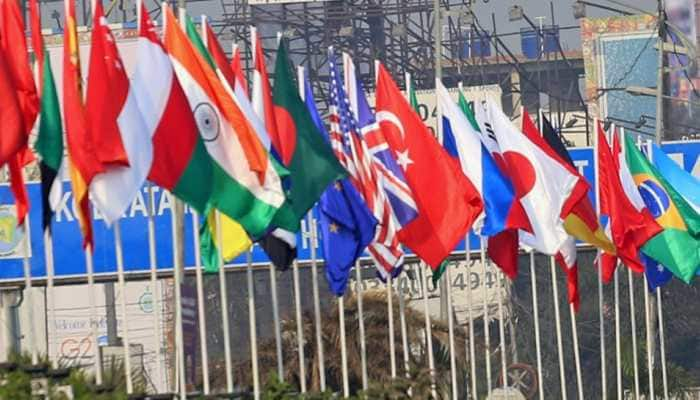Protectionism can blunt US firms' efficiency, says Jaitley
While the global economy impacted India, the country's large market and domestic demand kept its economy going, helping it clock 7.5 percent plus growth even during global slowdown.
Trending Photos
)
Japan: US firms may become sluggish if cheaper products and efficient services are cut off to them due to protectionist policies, Finance Minister Arun Jaitley said on Saturday, amid concerns that protectionism in US can affect Indian companies.
He said India has so far not been impacted by US' protectionist overtones and hoped nations will realise that free trade is the only way forward.
Speaking at a session on 'Asia's Economic Outlook: Talking Trade' on the sidelines of Asian Development Bank's 50th annual meet here, he said developed economies are aided when their companies benefit from cheaper products and more efficient services outsourced from countries like India.
"If this itself is reduced, it is quite likely that these companies themselves may become sluggish because then you have to rely on products which are costlier, services which are less effective," he said.
He said economies will have to become more efficient in order to make sure their goods and services have acceptability all over the world.
On the impact of Trump administration's executive orders curbing visas for skilled workers and 'Buy American, Hire American' policy, the minister said, "I don't think we have felt any impact because of the executive order at the moment."
He said no economy can be immune from what happens in the rest of the world.
"So if there is a global slowdown, the slowdown will certainly impact demand, exports and these impacts would be domestically felt also.
"If commodity or oil prices fluctuate, it is going to have significant impact on an economy like India," he said.
While the global economy impacted India, the country's large market and domestic demand kept its economy going, helping it clock 7.5 percent plus growth even during global slowdown.
"And that is essentially because of a set of large number of structural reforms.
"One of the major structural reforms was we became one of the most open economies in the world, and we simplified FDI procedures and over the last 2-3 years. We became the largest recipient globally of FDI and that became a great additionality of resource for domestic economy," he said.
So even when domestic investment was modest, foreign investment coupled with a large number of government and public spending still managed to keep the economy going.
"But if you are growing at this pace and you have the force of global tailwinds, which are positive, behind you, then certainly you can move up a lot more.
"We do sustain and survive in spite of what is happening in the world, but what is happening in the world certainly does impact us ," he said.
The Finance Minister said trade is going to find ways and means either by way of multilateral, unilateral or bilateral arrangements.
"I don't think there is any force in the world today that can prevent trade. There are going to be movements of...Persons from one part of the world to another because economies need experts, they need technology.
"There is going to be movement of technology, capital, goods and commodities because some countries have surplus some countries have shortage," he said.
Global trade, he said, either through regional pacts or any other alternative form will move forward.
"And even if you have some temporary setbacks on a particular trade deal, economies in the long run are going to go into a process of self realisation - did it help us eventually?" he added.
Stay informed on all the latest news, real-time breaking news updates, and follow all the important headlines in india news and world News on Zee News.
Live Tv







)
)
)
)
)
)
)
)
)
)
